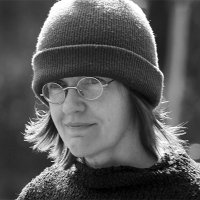Diane Stubbings

Diane Stubbings is a writer and critic based in Melbourne. Her plays have been shortlisted for a number of Australian and international awards, and staged in Sydney, Melbourne and New Zealand. She has written for Australian Book Review, The Australian, The Canberra Times, and the Sydney Review of Books. Her study of Irish Modernism was published by Palgrave. Diane has recently completed a PhD at VCA, University of Melbourne, investigating intersections between science and theatre.
In his program notes for the Melbourne Theatre Company’s production of Seventeen, playwright Matthew Whittet describes the play as ‘a conversation between generations. A conversation that acknowledges how hard it is to be on the brink of adulthood, but also how ridiculous and filled with utter joyful stupidity it is too.’
First, let’s get out of the way any idea that Seventeen might have ... (read more)
Suzie Miller’s play Prima Facie is one of Australia’s most celebrated literary exports of recent years. After an award-winning run of performances in Australia, a production helmed by Killing Eve star Jodie Comer triumphed in London’s West End and on Broadway, garnering deserved accolades for Comer as well as a coveted Olivier Award for Best New Play in 2023.
In the wake of the play’s ext ... (read more)
In Martin Amis’s novel The Zone of Interest (2014), Auschwitz Commandant Paul Doll asserts that to meet the objectives of the Reich it is necessary to ‘shut down a certain zone of the mind. I must accept that we have mobilised the weapons, the wonder weapons, of darkness.’ Doll is not a man seeking to absolve himself. Rather, he attempts to explain his dilemma, lamenting not so much the mora ... (read more)
In her essay ‘The Irish Woman Poet’, Eavan Boland (herself considered Ireland’s greatest female poet) noted that ‘The life of the Irish woman – the ordinary lived life – was both invisible and, when it became visible, was considered inappropriate as a theme for Irish poetry.’ The only place within poetry for an Irish woman, history seemed to insist, was as either muse or myth. Any hi ... (read more)
Some of Australia’s most enduring plays have dealt with war and its legacy. Alan Seymour’s The One Day of the Year (1960), John Romeril’s The Floating World (1974), Dorothy Hewitt’s The Man from Muckinupin (1979), Kate Mulvaney’s The Seed (2008), and Tom Wright’s Black Diggers (2015) have, each in their own way, interrogated the baptisms of blood upon which much of our national mytholo ... (read more)
In his survey of the notebook Arthur Miller kept while writing Death of a Salesman, John Lahr, in Arthur Miller: American witness (2022), relates that early in its composition Miller considered calling the play ‘The Inside of His Head’. Correspondingly, Miller envisioned the stage ‘designed in the shape of a head, with the action taking place inside it’.
Miller’s instinct to discard the ... (read more)
Voices in Caryl Churchill’s plays swell and ripple and surge, but they are an unquiet river in whose streambed is hidden the unspeakable, the incomprehensible. Like Samuel Beckett and Harold Pinter – the two playwrights with whom she is most often compared – Churchill is a doyenne of the unspoken, silences manifesting as much through their presence as their absence.
Silence, too, surrounds ... (read more)
British sculptor Barbara Hepworth wrote that ‘there is no landscape without the human figure’. Similarly, there is no human without the landscape in which they are situated, human and landscape mutually shaping, resisting and defining the other.
Three new Australian novels probe this interdependence, each of them concerned with the historical forces that have silenced and confined women, and ... (read more)
In previous memoirs, Brisbane-based writer Kris Kneen has examined their life through the lens of their sexuality (Affection, 2009) and their family history (The Three Burials of Lotty Kneen, 2021). In Fat Girl Dancing, Kneen’s lens is their body, specifically the body of a ‘short, fat, ageing woman’.
The struggle with body image that Kneen depicts here – a struggle that will be familiar ... (read more)
